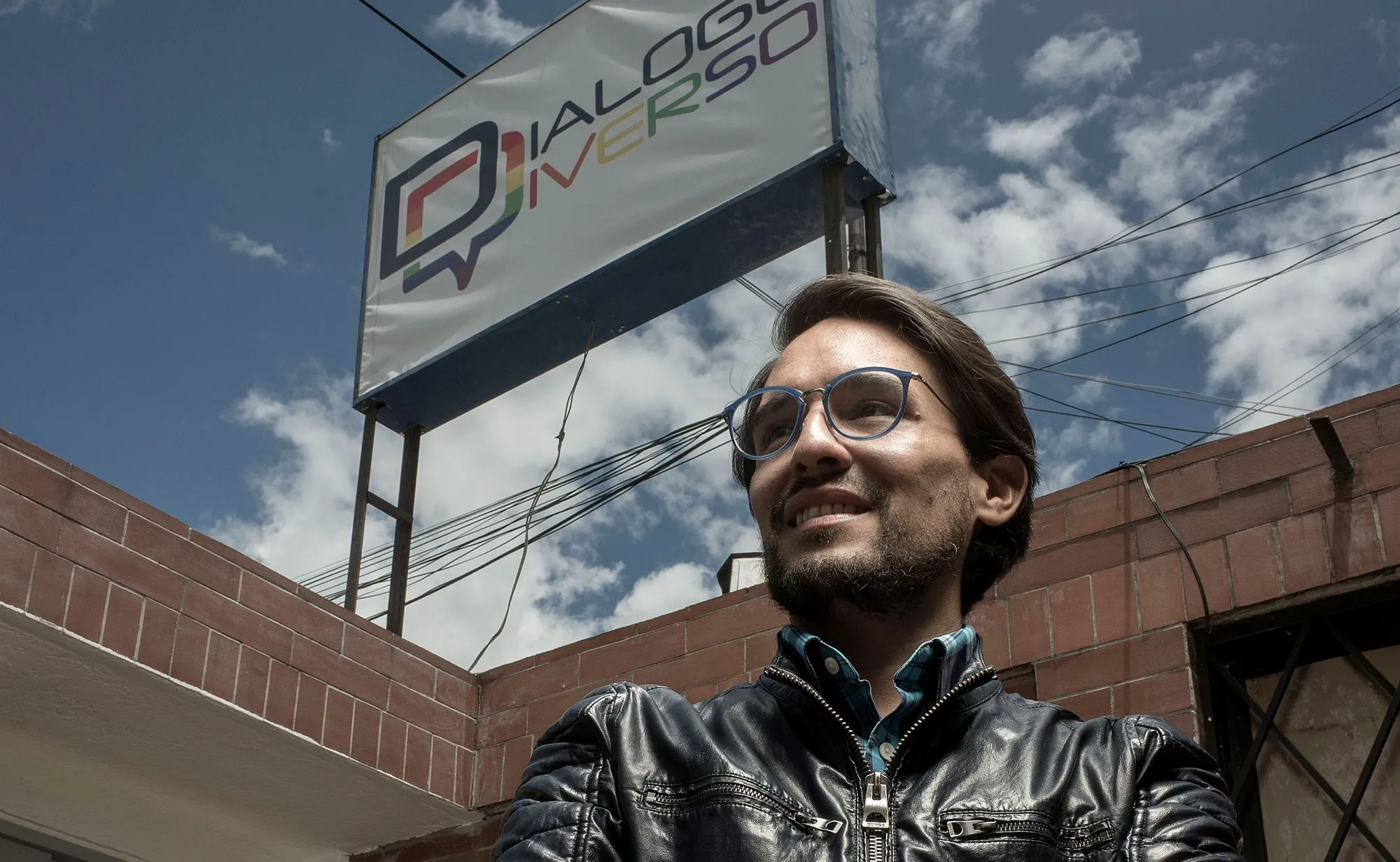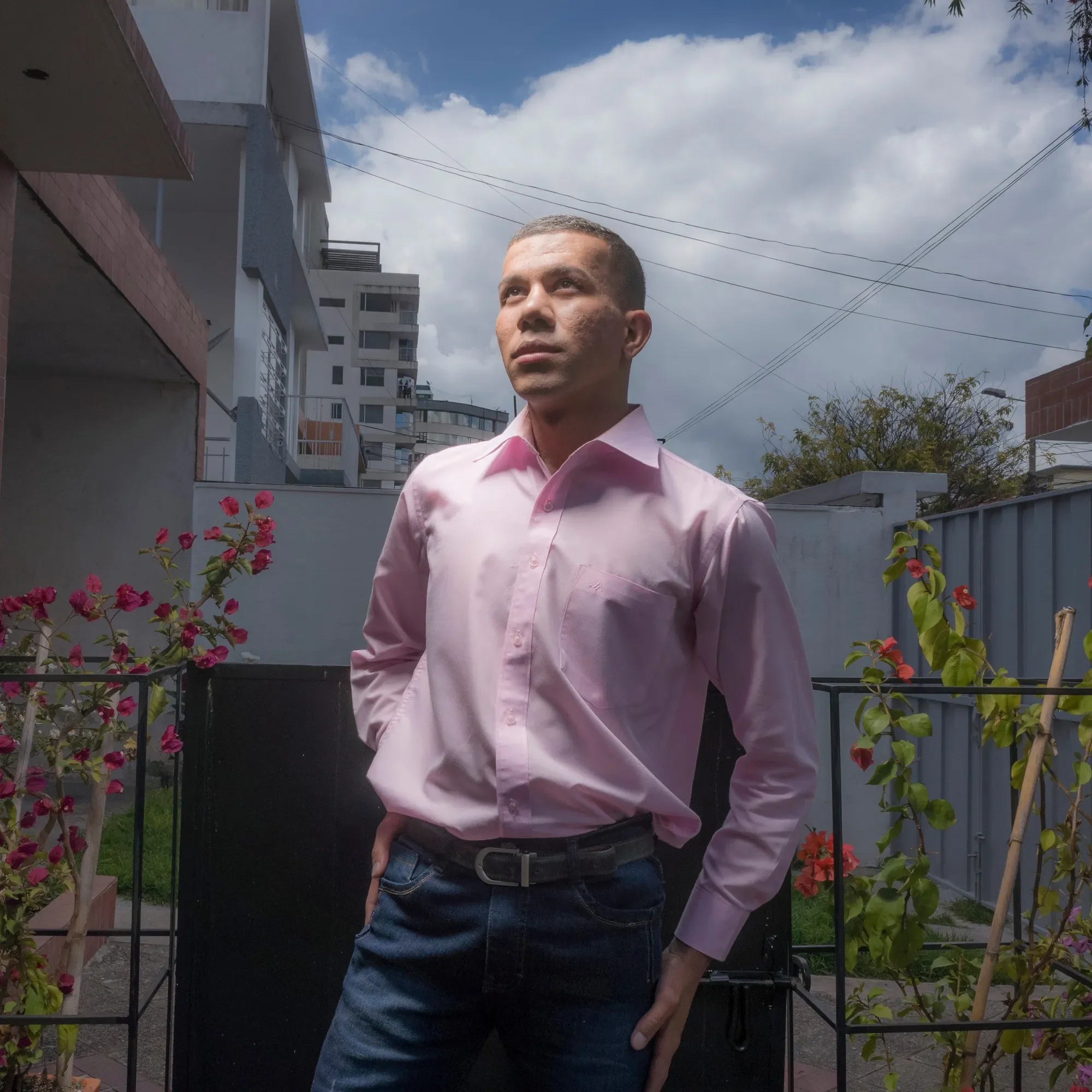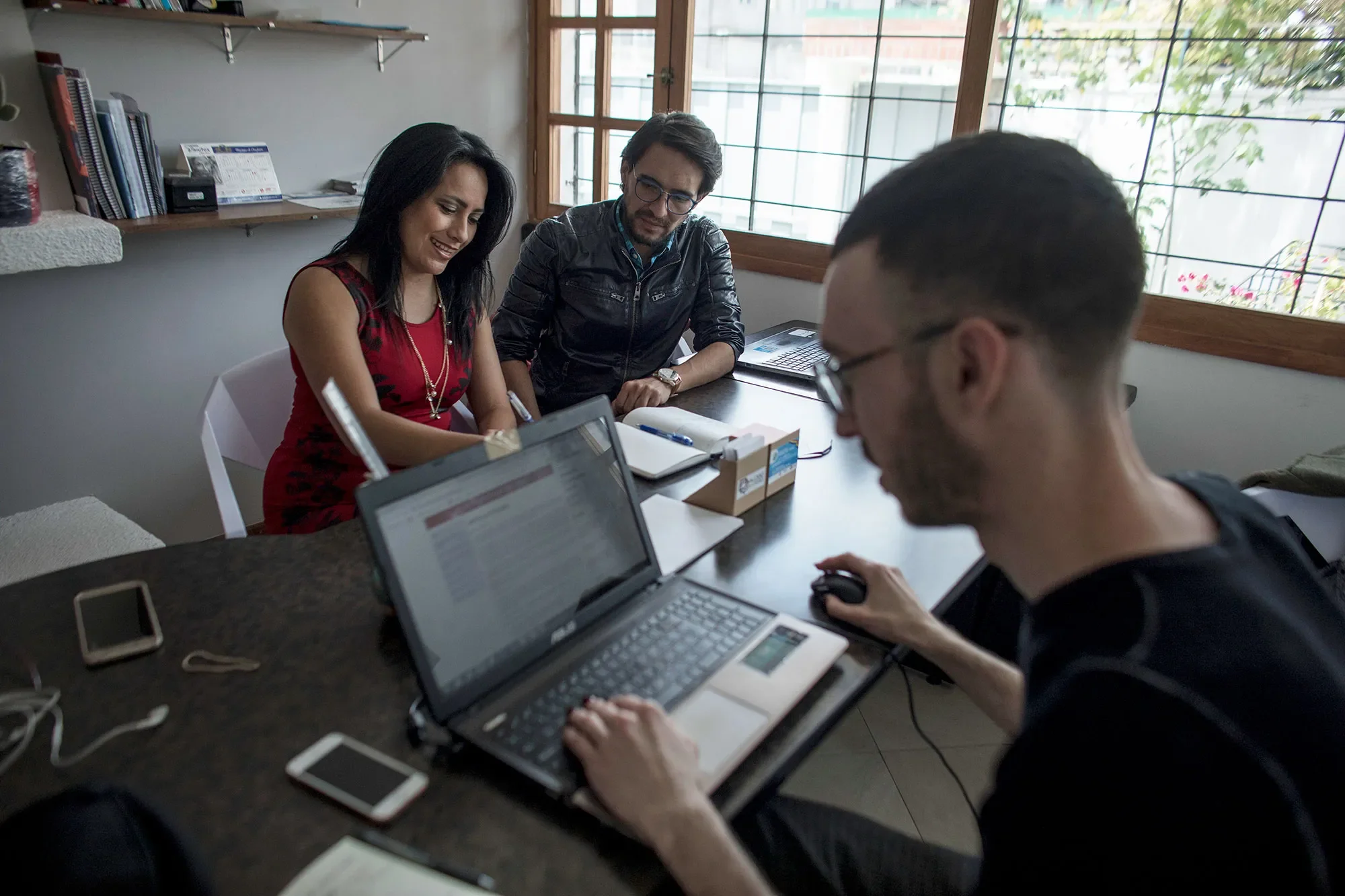On a residential street in Quito, Ecuador, one home has been transformed into a refuge. Red and pink flowers liven the front yard of Dialogo Diverso, a community organization providing LGBTQ migrants and refugees with free drop-in counseling, workshops on topics ranging from employment to LGBTQ rights, and referral services to other agencies. Milo, the resident dog, wags his tail and welcomes visitors. Inside, a traditional pride flag brings a pop of color to the minimalist, all-white space. Since it opened last November, Dialogo Diverso has helped over 300 LGBTQ Venezuelan migrants.
According to the UN Refugee Agency, over 9 million people have been affected by the current economic and humanitarian crisis in Venezuela. Of those, 3.7 million have fled the country. Neighboring countries such as Ecuador have been overwhelmed by the increase in migration. Approximately 350,000 Venezuelans are registered in Ecuador (the actual number is estimated to be much higher), and that figure is expected rise to over 500,000 by the end of 2019, according to UNHCR.



